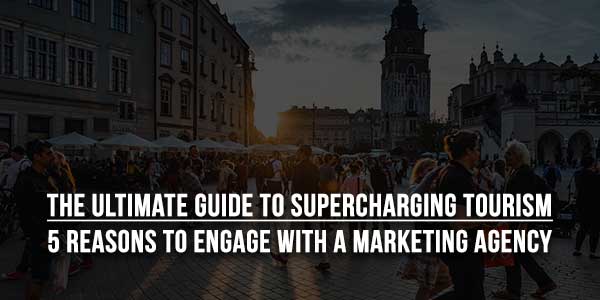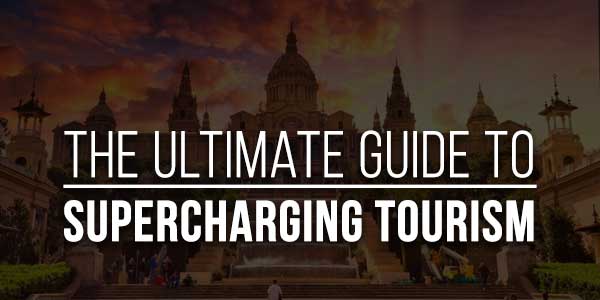
When it comes to driving tourism, the strategies and tactics employed can shape an entire industry. For destinations seeking to lure tourists from afar, the power of marketing cannot be overstated. Today’s discerning travelers are not just looking for beautiful landscapes and historical sites – they are seeking experiences that are vibrant, personalized, and shareable. So, how can a travel marketing agency craft and magnify the allure of a locale to its most desirable pitch?
A savvy marketing agency can guide travelers toward the most thrilling and relaxing adventures. Are you ready to embark on an unforgettable journey? Discover five proven strategies that can skyrocket any destination to unprecedented levels of popularity. Let’s dive in and explore these game-changing strategies!
Table of Contents
Strategic Branding:
The cornerstone of a tourist destination’s appeal is its brand. With strategic branding, a marketing agency cultivates an identity that encapsulates the essence and promise of a location, crafting a narrative that captivates the public’s imagination.
This involves a deep dive into the cultural, historic, and natural elements that make a place unique. The resulting brand identity platform isn’t just about logos and color schemes – it’s a cohesive vision that resonates with the aspirations of target audiences.
Thoughtful messaging is crucial. Clear, memorable statements that evoke an emotional response are what will stick in a traveler’s mind. In a world saturated with advertising, simplicity is your ally. A concise and powerful message can transform into a captivating slogan inspiring explorers to embark on new experiences.
Targeting the right audience is as important as the message itself. A skilled marketing agency will segment the market, ensuring that each group is addressed with content and campaigns that speak directly to their desires and needs. Whether it’s a family vacation, a solo adventure, or a conventional destination, the right segment should feel that its unique desires are well understood and catered to.
Digital Marketing:
The digital landscape has become the heart of tourism marketing, and it’s where the savvy traveler begins their journey. Your website is your digital storefront – it must be visually compelling, easy to navigate, and packed with the information and tools travelers need to start planning their trip.
A travel marketing agency knows the importance of high-quality web content that’s optimized for both human readers and search engines. This means not only compelling storytelling – though that is crucial – but also strategically placed keywords, authoritative backlinks, and an intuitively organized site structure that enhances user experience and boosts SEO performance.
Social media is the modern-day word of mouth – and its reach is global. A comprehensive social media strategy crafted by a marketing agency can turn tourists into brand ambassadors, sharing their experiences and creating online buzz that money can’t buy. Visual platforms like Instagram and Pinterest are particularly powerful, as they allow destinations to showcase their aesthetics in all their glory.
In a digital world, change is the only constant. As new platforms emerge and algorithms evolve, staying at the forefront requires continual innovation. Smart content marketing, like creating destination-themed travel guides or interactive maps, can keep tourists engaged with your brand and drive traffic to your website.
Content Creation:
Enchanting tourists with tales and visions of your destination begins with compelling content creation. A professional marketing agency will employ a vast array of content: from blog posts and articles to stunning photography and immersive videos, each piece designed to highlight the memorable elements of a location.
For example, a series of articles detailing the local culture and traditions could captivate history buffs, while visually striking videos of adrenaline-pumping adventure activities might entice thrill-seekers. By targeting different interests and travel styles, a destination can draw a wider audience, ensuring that it’s on the radar of diverse travel markets.
High-quality visuals are non-negotiable. They serve as the first impression for many potential visitors. Professional photos and videos showcase a destination at its best, inviting viewers to imagine themselves there. Effective visuals are a transformative force, making an intangible dream feel achievable.
User-generated content is a potent yet often underutilized asset. Encouraging visitors to share their experiences through social media can provide authentic, relatable content that resonates with others. This peer-to-peer endorsement is invaluable – it’s akin to free advertising that carries the trust of a friend’s recommendation.

Influencer Partnerships:
Influencers wield significant sway over their followers, who often number in the hundreds of thousands or even millions. By partnering with these industry tastemakers, a marketing agency can have the brand’s voice amplified to a vast, highly engaged audience.
Travel influencers and bloggers are particularly effective, as their content is aspirational and inspirational, and often creates a desire to emulate their experiences. When influencers genuinely connect with a place, their endorsement has a tremendous effect on their audience’s perceptions and travel plans.
Local influencers, while potentially having smaller followings, can be just as valuable. Their content possesses an authenticity and inside knowledge that resonates with travelers seeking a genuine, off-the-beaten-path experience. When a local influencer is impassioned about their surroundings, it’s infectious.
Influencer marketing campaigns must be carefully crafted to ensure that both the influencer and the brand message are aligned. The travel marketing agency is responsible for setting clear objectives, outlining expectations, and, most importantly, guiding the narrative to effectively communicate the brand’s unique selling propositions.
Data Analytics:
In the tourism industry, the data doesn’t just inform – it guides. A forward-thinking marketing agency leverages analytics to steer the ship toward success. By tracking visitor behavior, demography, and trends, the destination can better understand what appeals to tourists and how to improve its allure.
Analytics is more than just measuring website traffic. It’s about understanding the journey of the tourist from initial inspiration to final booking. Which blog posts are driving the most engagement? What’s the conversion rate of those who download the travel guide? These insights can inform content strategies, website optimization, and more.
Informed decision-making based on hard data is a powerful tool. It reduces guesswork and increases the effectiveness of marketing efforts. If a particular campaign is underperforming, analytics can reveal the reasons, allowing the agency to pivot and experiment with different approaches.
The beauty of data analytics is its adaptability. By continually monitoring and adjusting strategies based on performance metrics, a tourism brand can remain agile and responsive to the ever-changing marketplace. It’s like having a finger on the pulse of the tourist’s collective heart.
As a travel marketer or destination manager, it’s your role to lead the charge in attracting visitors, providing them with unforgettable experiences, and creating a cycle of positive feedback that only grows with time. Utilize these five strategies as your roadmap, deftly crafted by a tourism marketing agency, and watch your tourism numbers soar. Tourism is not just about selling a place – it’s about kindling a passion for exploration. And with the right marketing at the helm, the tourism industry can unlock new worlds for every intrepid traveler.
Remember, the destination is the story, and you are its most eloquent teller. Now, go out there and weave a tale that the world can’t help but listen to.

 About the Author:
About the Author:
















Be the first to write a comment.